by Michael Clawson of Terminal Volume
The great directors became great not by sitting around plucking the occasional movie from each decade, but by relentlessly pursuing projects at every opportunity. They worked so hard and so fast that today the libraries of their films are vast with forgotten corners and dusty shelves. Here is a small selection of my favorite forgotten works by major directors working today.
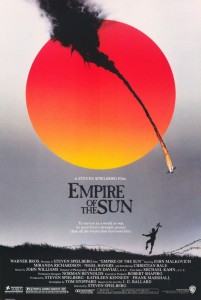 Empire of the Sun, Steven Spielberg
Empire of the Sun, Steven Spielberg
Sandwiched between The Color Purple and Indiana Jones and the Last Crusade is Spielberg’s beautifully terrifying war journal Empire of the Sun, featuring a young Christian Bale as a British boy caught up in the events of World War II in Japanese-occupied China. The film, treasured in certain circles and frowned upon in others, is widely forgotten today, even as a stepping stone for the young Bale, who would go on to become a superstar. I was reminded of this film last year during Angelina Jolie’s similar, but altogether hollow, Unbroken, about another figure caught in the madness of war. Spielberg, of course, has produced some masterful and timeless images for the screen, but look at any highlight reel of his work and it’s all Jaws, Saving Private Ryan, E.T. and Jurassic Park. Yet, here in Empire — which is based on a book by one of the great writers of the 20th century, J.G. Ballard — he continuously one-ups himself with marvelously poetic imagery: a boy riding his bike in a country house, playtime in a derelict fighter plane, showers of sparks on a runway, fields of stolen antiques … it has a continuously magical series of shots. And yet, it’s forgotten, right alongside another Spielberg misfire worth revisiting, 1941. Both films are Spielberg B-sides, but they’re terrific.
After Hours, Martin Scorsese
Martin Scorsese has a fascination with men adrift in secret worlds that are invisible to the naked eye: gangsters in Goodfellas and Casino, paramedics in Bringing Out the Dead, bankers in Wolf of Wall Street. In his After Hours, his 1985 surrealist comedy, the lights go out in New York City and it becomes an absurd fantasy, where keys, art and angry mobs (but never actual money) are the currency of the film’s hapless protagonist, played by Griffin Dunne. The film bounces from one awful misadventure to the next, until you realize it has ended exactly where begun. Scorsese is frequently cited for his violence and scoundrel leading men, but it should also be noted he has a wicked sense of humor.
Rumble Fish, Francis Ford Coppola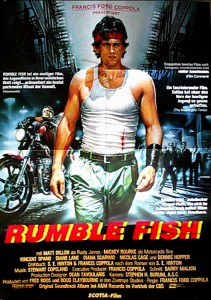
Years after making the first two Godfather films, Apocalypse Now and the The Conversation, Francis Ford Coppola made two movies based on S.E. Hinton books. The first, The Outsiders, was widely seen and appreciated, but the second, Rumble Fish, filmed the same year as The Outsiders, slipped into the cracks of Coppola’s long career. Some of this might have to do with the experimental nature of the film: its odd pace and composition, the jazzy bohemian soundtrack, or its high-contrast black and white presentation. But the unique style of Rumble Fish, coupled with the impressive performances of Matt Dillon and Mickey Rourke — playing characters named Rusty James and Motorcycle Boy — stands as a hallmark to Coppola’s power as a director.
A Perfect World, Clint Eastwood
Coming on the heels of Unforgiven, A Perfect World did not make the splash that it was probably intended to make. The movie, about an escaped convict who kidnaps a young boy in 1960s Texas, was a moderate moneymaker and was warmly received by critics, but would be quietly forgotten when presented next to Eastwood’s later works, especially during his directing spree starting in 1997 and barely slowing down since then. The film is notable for its delicately written script (by Disney hired gun John Lee Hancock), the combination of Kevin Costner’s convict and T.J. Lowther’s malleable young boy, and the careful way in which Eastwood filmed their joint escapades across Texas. It’s still, to this day, one of his finest films.
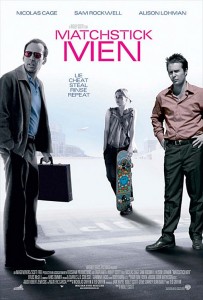 Matchstick Men, Ridley Scott
Matchstick Men, Ridley Scott
Ridley Scott is one of the hardest working directors in Hollywood, not because he makes more films, but because he makes more big films — his projects are almost always labor intensive, besieged by extras and special effects, and have long runtimes. James Cameron makes big movies, too, but not at Scott’s pace. It was surprising then to see Matchstick Men, a low-key long con movie about a father and a daughter. First of all, I love long con movies, and this one is just spectacular. Nicholas Cage is an OCD grifter, Sam Rockwell plays a sleazy partner, Bruce McGill plays the gullible mark, and Allison Lohman is the long-lost daughter there to gum up the works. The film’s beauty is that after the con drops, the mark — the true mark — actually got what he wanted, which is something I wasn’t expecting.
The Limey, Steven Soderbergh
Between Out of Sight and Erin Brockovich, Steven Soderbergh made The Limey, a crime thriller in the vein of an Elmore Leonard story. The movie is a revenge tale involving a very snappy Brit flying to the Unites States to find out about his dead daughter. He runs into characters played by Peter Fonda, Luis Guzman and Bill Duke, and is generally a cool customer as he murders his way through a criminal empire. The film works because of its star, Terence Stamp, who is simply electric as the fast-talking father with a grudge. It also works because it’s simple. Soderbergh doesn’t drown his material in style and substance. He just tells a story, as quickly and effectively as he knows how.
Salvador, Oliver Stone
Before Oliver Stone would go on to fame with Platoon, Wall Street and Born on the Fourth of July, he made Salvador in 1986, the same year he also made Platoon. The film follows a war photographer, whose desire for blood and carnage takes a turn on him during political unrest in Salvador. The frantic imagery, violence, the characters’ use of language … these are all trademarks that we will see in later Stone pictures. it also helped that James Woods, playing the photographer character, was at his most James Woodsian, bouncing off the walls in all his glory.
eXistenZ, David Cronenberg
This gritty science fiction fantasy likely suffered from stiff competition at theaters in the weeks surrounding its release, namely with a little film called The Matrix. But I maintain here that Cronenberg’s eXistenz is, in many ways, a better film about “jacking in” or “booting up” into a false reality. The film is punctuated with noir-inspired flourishes of mystery, some of them involving skin-draped joysticks that are clearly modeled after the sex organs of some interplanetary species. Also interesting are the almost robotic performances of Jennifer Jason Leigh and Jude Law. The film ends on an Inception-like top twirl that calls into question everything we’ve already seen, a trait of almost all of Cronenberg’s films.
Strange Days, Kathryn Bigelow
Here’s another film that was upstaged by The Matrix, but is largely forgotten: Kathryn Bigelow’s terrific Strange Days, about a black market dealer in SQUID clips, a sensory recording made by jacking right into the human brain. Ralph Fiennes is the dealer, and he’s joined later by Angela Bassett, Tim Sizemore and a very naked Juliette Lewis (singing her own songs). The action thriller works because Bigelow takes the world she creates as seriously as the characters do. The science fiction is out there and weird, but within the scope of plausibility, and the characters react to in ways that are believable. The film also uses these crazy first-person perspectives, which would be an overindulgence in another movie, but here they make complete sense.
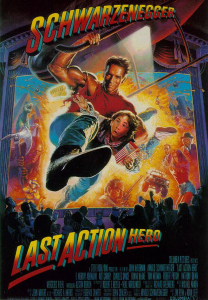 Last Action Hero, John McTiernan
Last Action Hero, John McTiernan
Bear with me on this one. Last Action Hero was a disaster when it was released in 1993, but I think the film was way ahead of its time for action movies and director John McTiernan, the director of action royalty Die Hard. It takes place in a world where Arnold Schwarzenegger, the real Arnold, plays a character named Jack Slater in a series of action thrillers. These films are watched by a young fanboy, who is eventually transported into the films, where film logic applies to everything from bullet physics and police station lobbies to car chases and the movie cliche of the Talking Villain. Later, the film escapes from the screen and enters Arnold’s real world. Charles Dance is in there with a false eye, Tom Noonan is an axe-murderer, Ian McKellen plays Death from The Seventh Seal. It’s all rather bonkers, but the movie was meta, before meta was really even a pop concept. It acknowledges the action cliches and tropes in a way that has never been done before or since. The movie has its flaws (eek — that kid!), but it spoke to entire generation of action films and it was laughed out of the room for it. By the way, McTiernan, who has been largely absent from filmmaking due to some legal troubles, needs to stage a comeback.
 Focus
Director: Glenn Ficarra and John Requa
Focus
Director: Glenn Ficarra and John Requa
 Mommy
Mommy
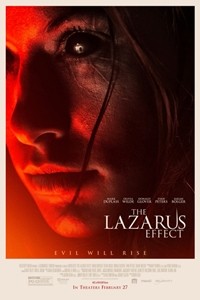 The Lazarus Effect
The Lazarus Effect
 1- The Assassination of Jesse James by the Coward Robert Ford — Andrew Dominik’s gorgeous ode to the west’s greatest outlaw is unlike any western that came before it. Rapturously narrated, photographed in poetic stanzas, and with acting that is devastatingly pure, Jesse James established the myth of the man and then shattered it, only to mythologize once again in its closing heartbreaking chapters.
1- The Assassination of Jesse James by the Coward Robert Ford — Andrew Dominik’s gorgeous ode to the west’s greatest outlaw is unlike any western that came before it. Rapturously narrated, photographed in poetic stanzas, and with acting that is devastatingly pure, Jesse James established the myth of the man and then shattered it, only to mythologize once again in its closing heartbreaking chapters. the Old West and its historical relevance. In Open Range he focuses on several cowpunchers and their desperate fight with a town’s heavy-handed leader. The film is notable for its realism, with gunfights taking place in agonizing realtime, townspeople who don’t vanish at high noon and relationships that don’t just take place behind swinging saloon doors. Dances With Wolves might be masterpiece, but Open Range is Costner’s smaller study of the west.
the Old West and its historical relevance. In Open Range he focuses on several cowpunchers and their desperate fight with a town’s heavy-handed leader. The film is notable for its realism, with gunfights taking place in agonizing realtime, townspeople who don’t vanish at high noon and relationships that don’t just take place behind swinging saloon doors. Dances With Wolves might be masterpiece, but Open Range is Costner’s smaller study of the west. 6-Brokeback Mountain — Forever known as the gay cowboy movie, people often forget that Ang Lee’s Brokeback Mountain was a loud declaration of the western’s right to be anything it wanted, without all the white hat/black hat cliché. The film made homesexuality, cowboys, stereotypes of the Old West, hate crimes, family values … all of it relevant in a modern context. Step aside from the cultural response to Brokeback Mountain and peer into this film’s open heart and you’ll see that had a lot to say, all of it eloquent.
6-Brokeback Mountain — Forever known as the gay cowboy movie, people often forget that Ang Lee’s Brokeback Mountain was a loud declaration of the western’s right to be anything it wanted, without all the white hat/black hat cliché. The film made homesexuality, cowboys, stereotypes of the Old West, hate crimes, family values … all of it relevant in a modern context. Step aside from the cultural response to Brokeback Mountain and peer into this film’s open heart and you’ll see that had a lot to say, all of it eloquent. Part revenge tale, part rescue mission, but thoroughly a Tarantino picture, Django turned two men — one white and one black — loose to fight their way through the Antebellum South. By recognizing and commenting on America’s terrible shame the film committed itself to western history.
Part revenge tale, part rescue mission, but thoroughly a Tarantino picture, Django turned two men — one white and one black — loose to fight their way through the Antebellum South. By recognizing and commenting on America’s terrible shame the film committed itself to western history. 10-Appaloosa — Ed Harris’ forgotten cowboy flick does not break tons of new ground for the western genre, which is why I like the movie so much — it’s more of a callback to the way these movies used to be. Lawmen with big guns, cattle barons, outlaws, shootouts, main street confrontations … innovation in the genre can only go so far before it must reach back into the past and borrow from what already works. And there is nothing wrong with that.
10-Appaloosa — Ed Harris’ forgotten cowboy flick does not break tons of new ground for the western genre, which is why I like the movie so much — it’s more of a callback to the way these movies used to be. Lawmen with big guns, cattle barons, outlaws, shootouts, main street confrontations … innovation in the genre can only go so far before it must reach back into the past and borrow from what already works. And there is nothing wrong with that. Empire of the Sun, Steven Spielberg
Empire of the Sun, Steven Spielberg
 Matchstick Men, Ridley Scott
Matchstick Men, Ridley Scott
 Last Action Hero, John McTiernan
Last Action Hero, John McTiernan McFarland USA
McFarland USA
 Hot Tub Time Machine 2
Hot Tub Time Machine 2
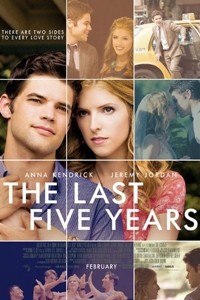 The Last Five Years
The Last Five Years
 Kingsman: The Secret Service
Kingsman: The Secret Service
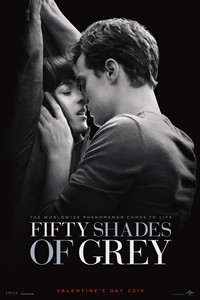 Fifty Shades of Grey
Fifty Shades of Grey
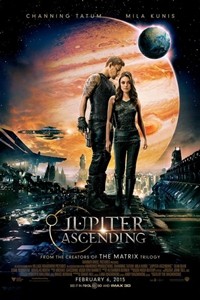 Jupiter Ascending
Jupiter Ascending
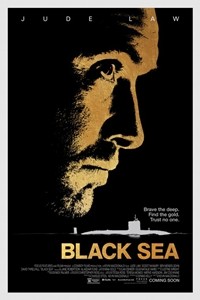 Black Sea
Black Sea
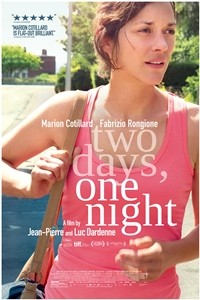 Two Days, One Night
Two Days, One Night
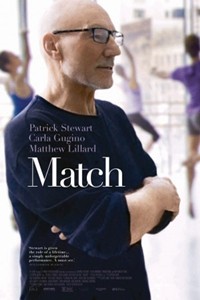 Match
Match
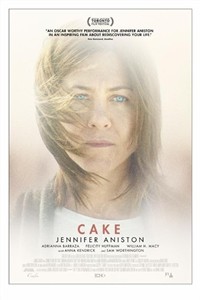 Cake
Cake








